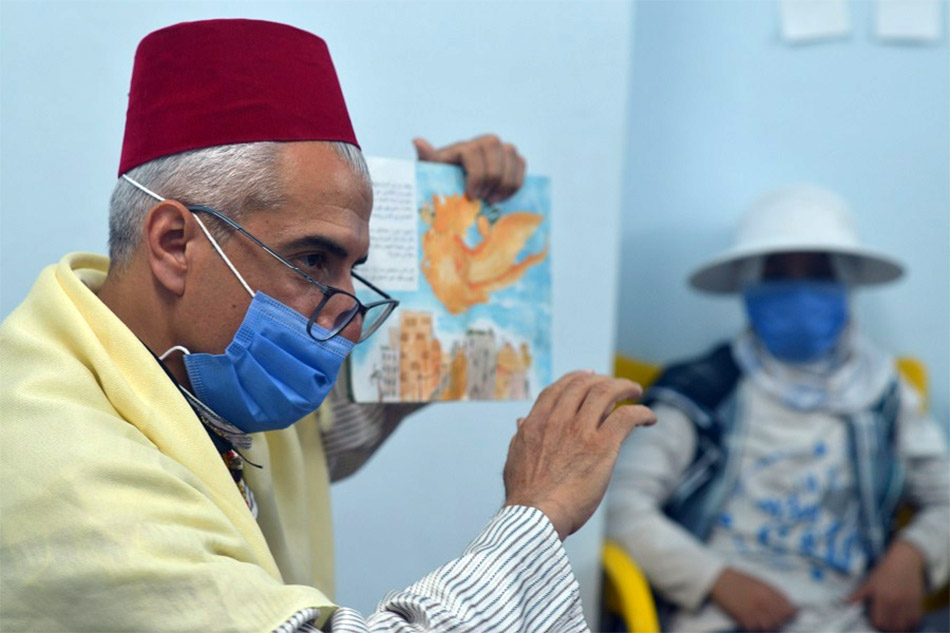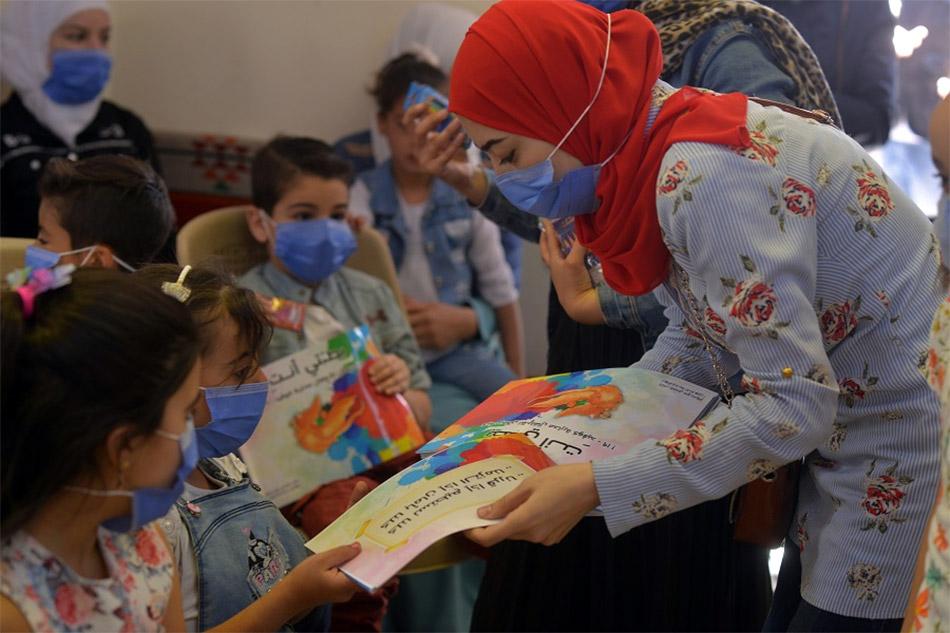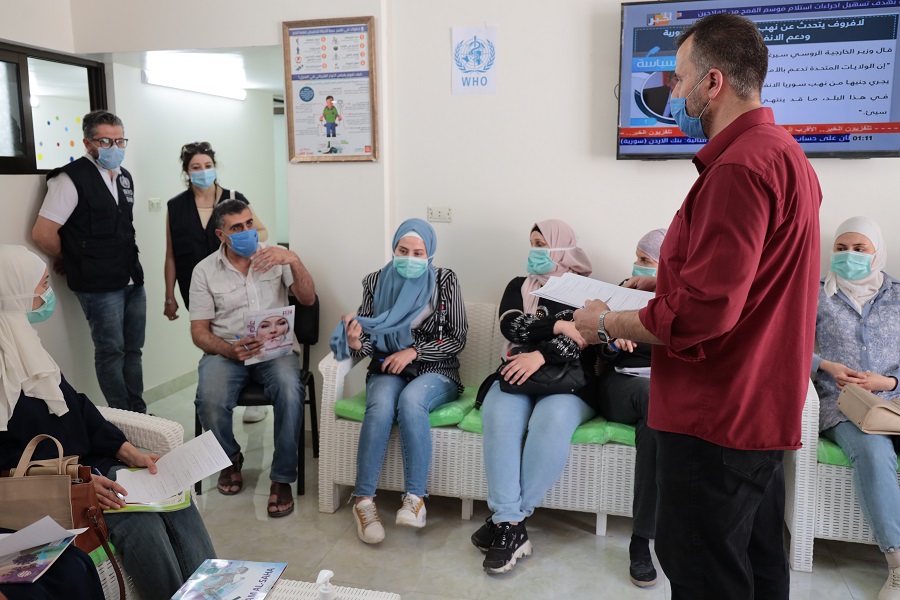
8 July 2021, Damascus – One in 10 people in Syria live with a mild to moderate mental health condition. Prolonged exposure to conflict and the COVID-19 pandemic have continued to strain the mental well-being of families. In response, WHO Syria and local nongovernmental organizations in Rural Damascus recently launched the “My Hero Is You” campaign, which aims to reduce anxiety and fear associated with COVID-19 among children, and enhance the ability of parents to effectively talk to children about their well-being.
The pilot campaign reached 5000 children and included messages about how to cope with stress delivered through a colouring book. The book was adapted to the Syria context and is based on a children’s story, entitled “My Hero is You”, developed by WHO and other members of an United Nations inter-agency committee on mental health and psychosocial support in emergency settings. The campaign also included the provision of psychosocial support sessions and focus group discussions, attended by 2000 parents, caregivers and health educators who discussed their concerns, coping mechanisms and support strategies for children experiencing stress in the context of the COVID-19 pandemic.

“In recent years, there has been increasing acknowledgement of the role of mental health in people’s overall well-being and, especially, children’s development. In Syria, the conflict was exacerbated by the COVID-19 pandemic and its adverse economic impact, so the need to address mental health has become even more acute. Thus, our increased focus on mental health aims at listening to communities – to their fears, concerns and experiences of coping with COVID-19 - and empowering them with tools and skills to stay mentally resilient and adapt to a new normal,” said Dr Akjemal Magtymova, WHO Representative in Syria.
The campaign, funded by the Solidarity Response Fund, was made possible thanks to partnerships with Al-Tal and Al-Qutayfah nongovernmental organizations, members of which received training by WHO prior to the campaign launch. The training was based on the WHO global package and adapted to the Syrian context to tailor it to the current needs of community workers who provide basic psychosocial support services to parents and children.
“I am proud to be part of the initiative through which I could teach parents and children how to overcome anxieties and stay positive despite the circumstances surrounding them. It was a joy to observe children reading and colouring the story and imagining themselves travelling around Syria with characters, like Ario, to share with other children what they have learned from the book and what to do to prevent transmission of COVID-19,” said Ahmed Sousan, 30, a volunteer from Rural Damacus who received WHO training.

“Maintaining a healthy lifestyle and work life balance were among the recommendations I received during the psychosocial support sessions, in addition to tips on how to talk to children about COVID-19 related fears. It was important for me to share how the pandemic affected the mental well-being of my family. I felt others shared the same concerns and together we can overcome the challenges of the current times,” said one of the parents at the Al-Tal centre.
Following the success of the pilot programme in Rural Damascus, WHO plans to replicate the initiative in Homs, Aleppo and other governorates this year to reach thousands of parents and children in need of mental health support; and in collaboration with the Regional Office for Eastern Mediterranean will also share the initiative’s best practices for other countries in the Region to replicate.
Media contact
Gulalek Soltanova
External Relations/Communications Officer
WHO Syria Office
Damascus, Syrian Arab Republic
+963 953 888 477


